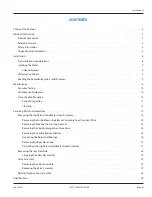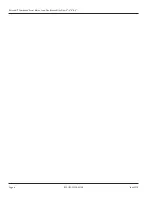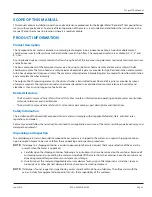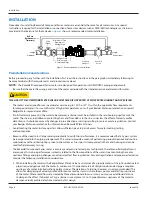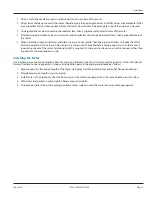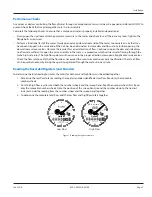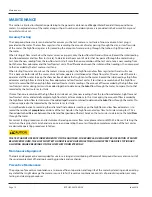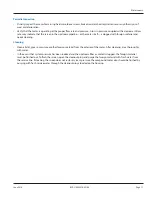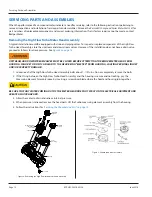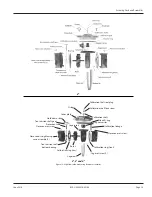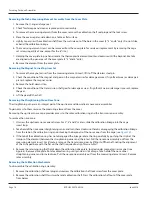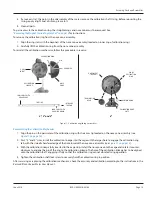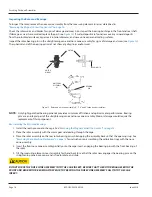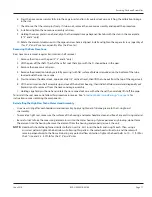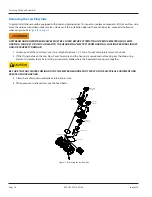
Inspecting the Rotor and Bearings
To inspect the rotor, remove the nose cone assembly from the measuring element insert as described in
"Removing the Magnet Carrier/Top Gear Set" on page 14
Check the rotor worm and blades for signs of damage and wear Also inspect the bearing bushings in the front and rear shaft
If damage or wear has occurred, replace the part (see
) If water deposits are found, remove any mineral deposits
from the rotor blade surfaces, cage insert interior diameter, and nose cone vanes and mating surfaces
Inspect the rotor bearing pins in the straightening vane and nose cone assembly for signs of damage and wear (see
The spherical end of the bearing pin must not show any drag lines and/or wear
ROTOR
ROTOR
WORM
BEARINGS (2)
NOSE CONE
ASSEMBLY
(2)
BEARING
PIN
Figure 12: Rotor and nose cone assembly (2", 3", 4" and 6" turbo head assemblies)
NOTE:
N
Only highly-polished bearing pin ends provide a minimum of friction and optimal meter performance Bearing
pins are an integral part of the straightening vane and nose cone assembly Wear or damage would require the
replacement of this component
Reassembling the Rotor and Bearings
1 Install the rear nose cone to the cage See
"Removing the Magnet Carrier/Top Gear Set" on page 14
2 Place the rotor assembly with the worm gear side leading through the cage
3 Place the rotor assembly on the rear rotor bearing pin, while tipping the assembly back so that the opening is up See
“Removing the Calibration Mechanism” on page 14
for instructions on assembling the calibration rings with the nose
cone assembly
4 Insert the front nose cone assembly partially onto the cage insert, engaging the bearing pin with the front bearing of
the rotor
5 Tilt the measuring element insert assembly forth and back to see that the rotor now engages the bearing pins on the
straightening vane/nose cones and is free to rotate and slide
DO NOT FORCE THE NOSE CONE ASSEMBLY INTO THE CAGE INSERT. BE SURE THAT THE ROTOR ENGAGES BOTH THE
FRONT AND REAR ROTOR BEARING PINS PRIOR TO PRESSING THE NOSE CONE ASSEMBLY FULLY INTO THE CAGE
INSERT.
Servicing Parts and Assemblies
June 2016
RCS-UM-00076-EN-04
Page 16


